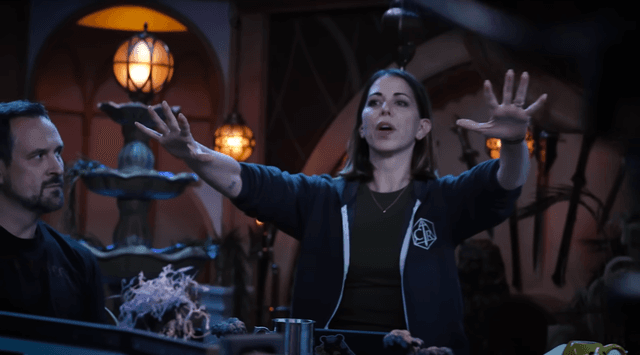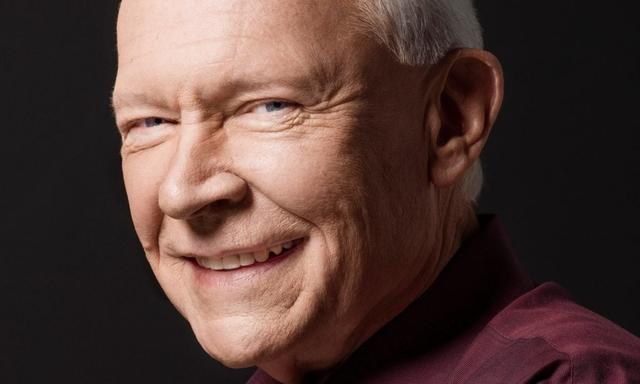If you click on a link and make a purchase we may receive a small commission. Read our editorial policy.
Masters of the Air says that war is hell, unless you're among the show's primary cast
The reveal at the end of the latest episode undercuts one of the show's big themes

Popverse's top stories
- "And my axe!" Lord of the Rings star John Rhys Davies says there's one world leader who deserves Gimli's iconic weapon
- Wonder Man is the Andor of Marvel Studios’ modern TV series on Disney+
- Absolute Batman happened because DC Comics writer Scott Snyder got bored reading about ‘superhero fatigue’
Major spoilers for Masters of the Air below
Those paying attention to Apple TV+’s Masters of the Air series likely had mixed feelings as they watched the climactic moments of the series’ sixth episode, where it was revealed that John Egan (Callum Turner) was being led into Stalag Luft III having failed to escape German captivity… but that his new situation meant that he was reunited with Buck Cleaven, Crank, and a number of his comrades that had been assumed dead weeks before.
On the one hand, the reveal was a moment of hope in the middle of an otherwise dark time, especially given earlier events in the episode, where Egan’s fellow captured airmen had been murdered by German soldiers in the middle of the street to avoid a riot. On the other, the sight of Cleaven (Austin Butler), playfully asking Egan what took him so long, felt like the series was backtracking on the apparent death of the character two episodes prior — along with a number of other assumed deaths across previous episodes — and, in doing so, was downplaying the horrors of the Second World War.

Let’s put aside, for a second, the fact that Masters of the Air is based on real life, and that the real Majors Egan and Cleaven did, in fact, both survive their planes being shot down over Germany and end up in Stalag Luft III. It’s not as if the series could really get away with killing off two characters who are, in fact, based on real people and re-write the real-life history they lived through. The survival and reunion of the two characters is, ultimately, just playing fair by the rules of the show as it stands. And yet… there really is a sense that, given these circumstances, things could have played out differently in terms of the show, so as to not mislead the audience into thinking that the characters were dead in the first place.
This might be sour grapes on my part; I’d purposefully not looked into the real life history of the characters in order to not spoil the show for myself ahead of time, and I foolishly fell for the idea that producers were so confident in their storytelling that they’d kill off some of the main cast off-screen between episodes to underscore one of the primary themes of the series: that no-one was safe in wartime, and that there were no guarantees of survival anywhere in combat. “How bold to write out Austin Butler just four episodes into the show,” I thought to myself.
This attitude should be contrasted by fellow Popversians, whose attitude at the time was, “He’ll be back, you don’t write him out so early.” When he didn’t reappear by the end of episode five, the episode his “death” was reported in, I felt confident that he was truly gone — especially as the series was already following two separate storylines about characters who’d been shot down and survived by that point. Oh, how naive I was…!

The dramatic problem with the bait and switch is that, for a series in which we’re told over and over again how dangerous it was to be a pilot, the show seems determined to play it safe in showing this. Only a handful of characters the audience were familiar with have seemingly actually died at this point, and arguably only one could be truly said to have been definitive with no possibility of being reversed in upcoming episodes. (Sorry, Barry Keoghan; you fireballed into our hearts by daring to actually die on camera, if that helps.) It’s as if the show is actively trying to undo itself in front of our eyes, undercutting its spirit in an attempt to stay as true to the facts as possible.
It’ll be interesting to see what happens as the series winds towards its conclusion, and how close the remainder of the show will hew to actual history, versus what’s dramatically fulfilling. (Spoilers, mildly: reality is less fulfilling than you might want it to be; yes, I’ve looked, now.) There’s three episodes left, and plenty of space for the show to lean away into what might be more satisfying for its audience… if perhaps a little bloodier in the process. Otherwise, Masters of the Air will prove to be a surprising attempt to teach the lesson that war is, indeed, senseless and cruel — but specifically so towards anyone who hoped to make compelling television out of it almost a century later.
Want to know what's coming up next in pop culture? Check out Popverse's guides to:
Follow Popverse for upcoming event coverage and news
Find out how we conduct our review by reading our review policy
Let Popverse be your tour guide through the wilderness of pop culture
Sign in and let us help you find your new favorite thing.
















Comments
Want to join the discussion? Please activate your account first.
Visit Reedpop ID if you need to resend the confirmation email.